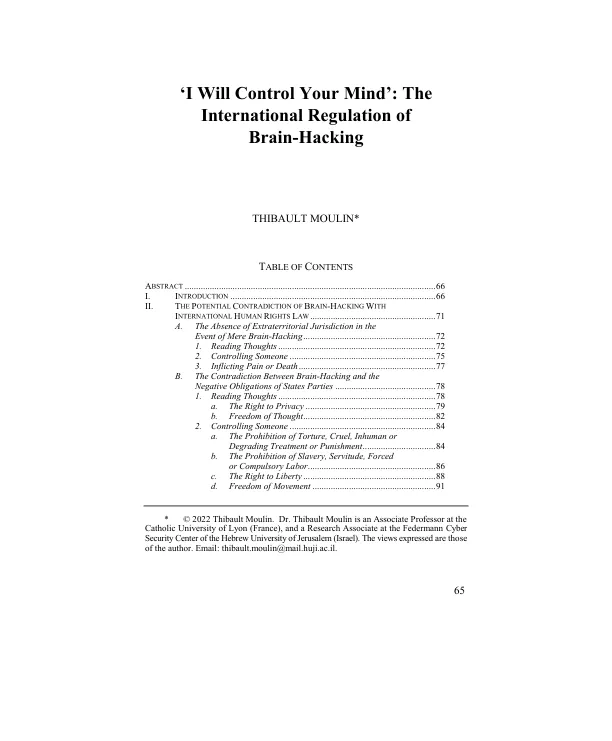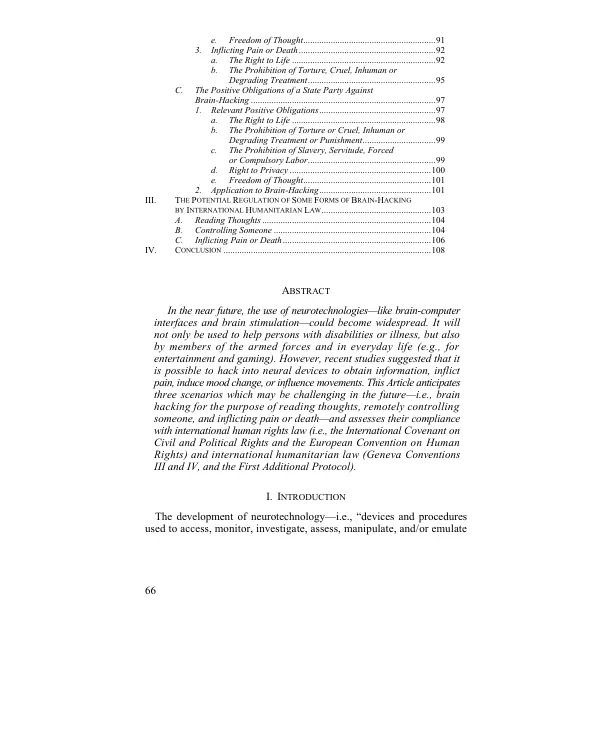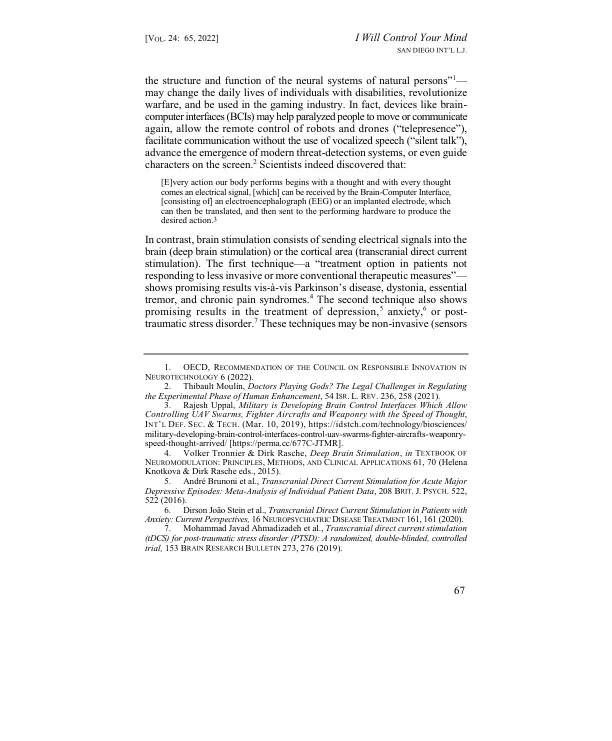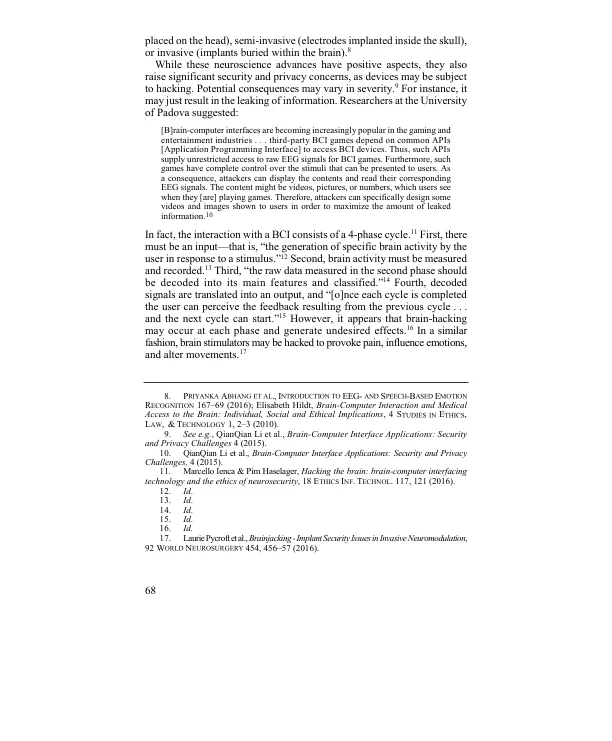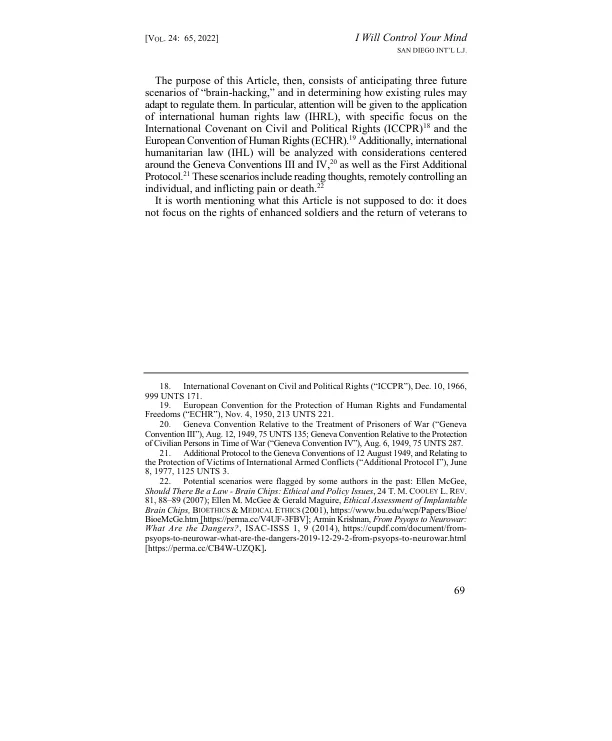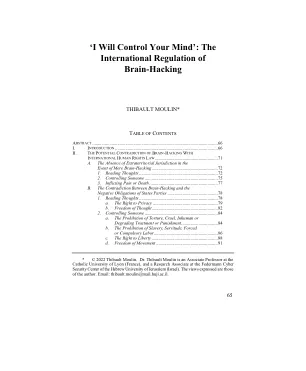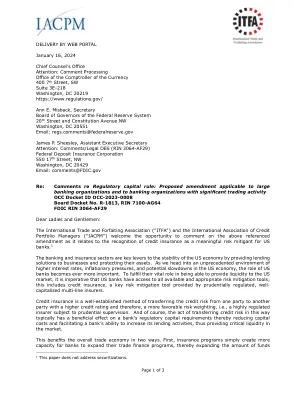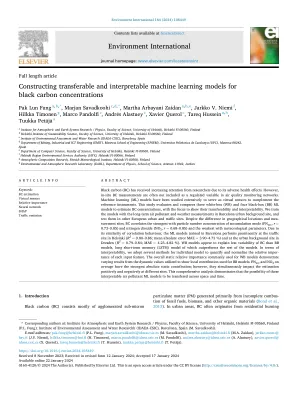机构名称:
¥ 4.0
在不久的将来,神经技术(例如脑部计算机界面和大脑刺激)的使用可能会变得广泛。它不仅将用于帮助残疾人或疾病的人,而且还可以由武装部队成员和日常生活(例如,用于娱乐和游戏)。然而,最近的研究表明,有可能入侵神经设备,以获取信息,引起疼痛,诱发情绪变化或影响运动。This Article anticipates three scenarios which may be challenging in the future—i.e., brain hacking for the purpose of reading thoughts, remotely controlling someone, and inflicting pain or death—and assesses their compliance with international human rights law (i.e., the International Covenant on Civil and Political Rights and the European Convention on Human Rights) and international humanitarian law (Geneva Conventions III and IV, and the First Additional Protocol).
国际脑海的监管
主要关键词
